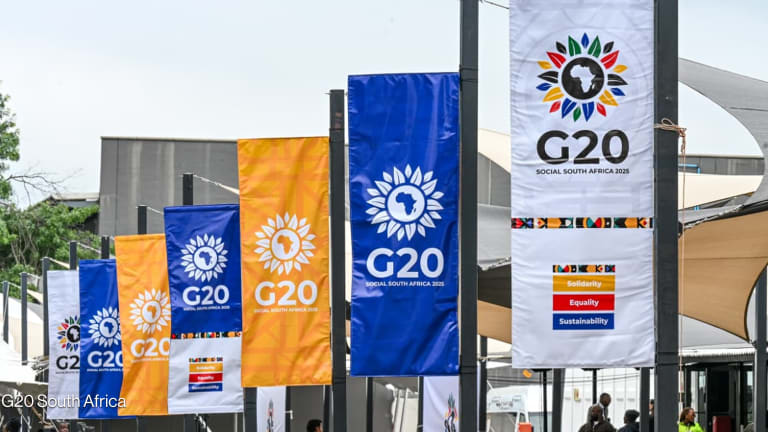
BRUSSELS — As it begins its new five-year term, the European Union’s institution for organized civil society is battling to defend its reputation amid allegations of mismanagement and questions over whether the body has become irrelevant.
The European Economic and Social Committee dates from the 1950s and was designed to allow employers, workers, and others, such as NGOs, the chance to influence EU policy. Members may issue nonbinding opinions, either on their own initiative or at the request of the other EU institutions, and they have a formal role in EU trade agreements through so-called domestic advisory groups to provide input on sustainable development.
A hearing at the committee is one of the first rungs on the ladder for those trying to push an issue onto the EU agenda, though evidence of its opinions influencing the European Commission, European Parliament, and member states is hard to come by.
As POLITICO Europe reported last week, with the European Parliament rising in power and doing more outreach to civil society directly, some in Brussels are wondering whether EESC still has a place. In Germany, one member of Parliament is calling for the committee in its current incarnation, which cost EU taxpayers €142.5 million ($167 million) in 2020, to be abolished.
“We need to act immediately to restore both the EESC's and our own reputations and rebuild trust and credibility both externally and in house.”
— Christa Schweng, president, EESC“The German government was not in a position to give even a single example of the EESC’s impact or usefulness,” Katharina Willkomm, a member of Parliament for the liberal Free Democratic Party, told POLITICO. “That leads to the conclusion: At least as it is now set up, we do not need the committee.”
Other criticism has been mounting. Controversially, EU countries last week reappointed member Jacek Krawczyk, a Polish business representative who faces criminal prosecution in Belgium for alleged bullying at EESC.
So when the 329 members — nominated by EU states — began the 2020-2025 term last month, their first mission was damage control.
“Let's be honest: In recent months, the committee could have had a better press,” Christa Schweng, the new president, said in a speech last week. “We need to act immediately to restore both the EESC's and our own reputations and rebuild trust and credibility both externally and in house.”
Dilyana Slavova, head of the committee’s external affairs section from 2015-2020, told Devex last month that EESC should now build on the “integrity, credibility, and trustful relations” it enjoys with partners in Africa, the Western Balkans, and Latin America.
This would come, she said, through “contacts and networking, with proposals, with exchanges.” She added: “It’s not overnight. It needs to be built and developed, this relationship. It has to come through common ideas, and these common ideas [are] to be formed in papers — position papers, statements, or whatsoever — and to be presented to governments. But it’s not so easy.”
Slavova said EESC has many achievements, though she said they could be better communicated.
EU states kick the tires of Team Europe plans
The European Commission wants to do things differently in its 2021-2027 development work. Member states want to see the fine print.
The Bulgarian cited EESC’s support for civil society in the Western Balkans on accession to the EU through annual summits and a dedicated section working on the Balkans. She pointed to domestic advisory groups’ monitoring of trade agreements, adding however that civil society should be consulted earlier in trade negotiations.
And on development, she highlighted the committee’s links forged with African civil society via exchanges with the Economic, Social & Cultural Council, the advisory body of the African Union. As negotiations conclude on the successor to the Cotonou Agreement covering trade and development ties between the European Union and 79 African, Pacific, and Caribbean states, Slavova said that, as under the previous deal, EESC should be mentioned explicitly in the agreement’s annex.
For now, however, there is scant evidence of how EESC has shaped the EU’s development policy.
Asked how civil society dialogues with African partners on issues like agriculture, food security, and the role of women and youth had changed EU policy, Slavova said she had noticed a growing number of participants at such events. Asked how the committee’s work had helped create jobs in Africa, Slavova referred to recent opinions on economic migration from Africa to the EU and the need for an equal partnership but added, “We are going to see now the results for these two opinions.”








